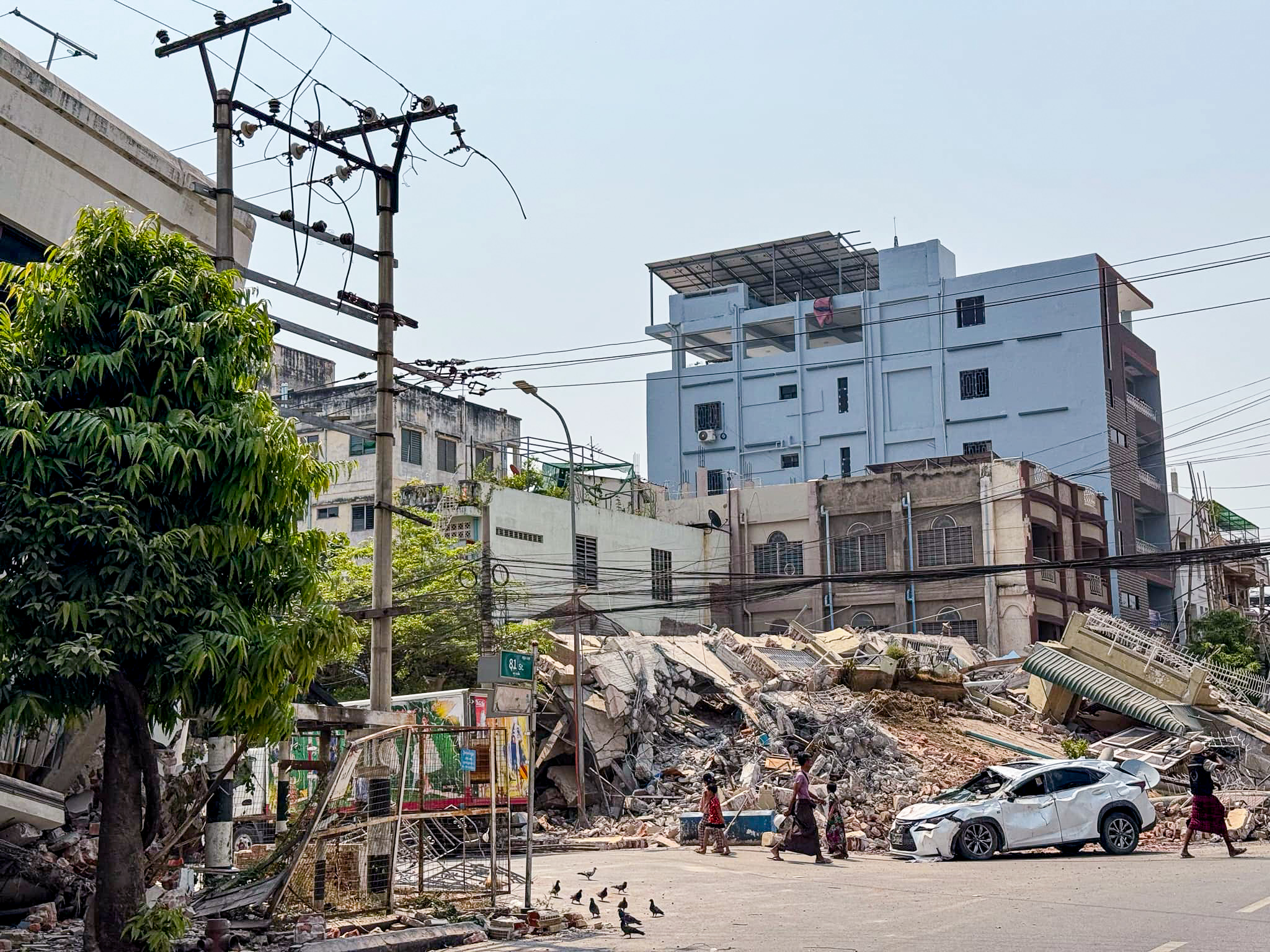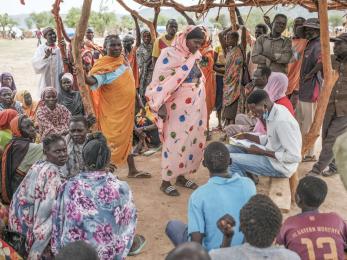We’re all connected: People are at the heart of humanitarian work
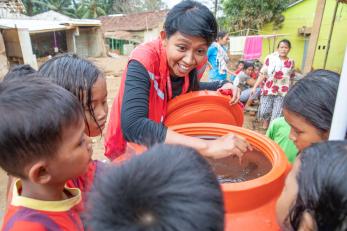
In 2004, thousands of communities across Indonesia were devastated in the wake of the Sumatra earthquake and tsunami. It flooded cities, destroyed homes, and more than 200,000 people in the region died. It was heart wrenching to see the destruction in my own country and I wanted to help. I joined Mercy Corps as an emergency response intern, learning the ins and outs of how humanitarian aid can reach those who are in urgent need and what it means to support communities on the long road to recovery.
I was familiar with Mercy Corps since my three brothers had been a part of the organization, with two of them on the emergency response team. I’m the second of four siblings, and for a while, all four of us worked alongside one another. Our parents were missionaries in Timor Leste, who opened an orphanage and health clinic. I learned so much from watching my parents share their knowledge with our community and still ask them for work advice to this day. My family taught me that we are supposed to help people who are suffering, because if something happens in the community, it’s all of us who suffer. We’re all connected.
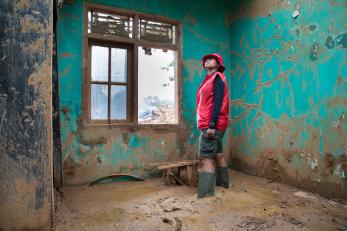
Since joining full-time in 2008, I’ve worn many hats at Mercy Corps, from administrative work and project support, to securing resources for women in our programs and building climate resilience in the region. I eventually held roles as a Manager of Emergency Responses and as a Program Performance Quality (PAQ) Manager, ensuring that our programs meet Mercy Corps standards. From trainings in project management and emergency response, I’ve worked with colleagues from Jordan and Vanuatu to Nigeria and Zimbabwe.
I’ve always said that any team member can join us in emergency response, regardless of their work background. We want people with heart to show up and become a part of the team because there’s a spot for anyone who can pitch in. At the core of an emergency response is figuring out the logistics of how to deliver aid as effectively and quickly as possible while collaborating with the local government. We assess conditions and potential challenges while keeping in touch with other organizations so that we can coordinate and distribute the type of aid the communities need. We have strategies for different emergencies, while also planning for long-term recovery.
My family taught me that we are supposed to help people who are suffering.
In West Sulawesi, nearly 10,000 people were displaced after a magnitude 6.2 earthquake in 2021. Three hospitals and more than 1,150 houses were destroyed. Many people were staying in crowded evacuation centers without basic hygiene supplies or clean water. The response team was slowed down by heavy rain, landslides, and power outages. Our experience with situations like these helps us to handle anything that comes our way. We all are ready to persevere through challenges, taking calculated risks when necessary, and we were able to deliver shelter, sanitation and hygiene kits, clean water, and food to more than 4,700 people in need. We think of every community as family. I felt proud that we were able to support them.
Whether we’re installing water points or delivering food kits—participants remember us. They are involved in their own recovery, and they want to show us their homes and the damage from a natural disaster. Our hearts melt for them. We can provide basic needs, but we follow the lead of people in the community, because they know exactly what they need.
During the height of the pandemic, I wrote a proposal to support a district in East Java that was badly affected by COVID-19. A number of villages in the area were selected to receive clean water access and hygiene support from Mercy Corps—unexpectedly, including the village where my mom lives. When I visited home, I was surprised to see hand washing buckets with the Mercy Corps logo throughout the village and my heart swelled with pride. The village applied COVID prevention techniques and the number of people infected with COVID declined. I am so proud of the team that’s supported by the Mercy Corps Indonesia Executive Director, Ade Soekadis, who has a very strong commitment in supporting emergency response, and that the team was able to help my mom’s village.
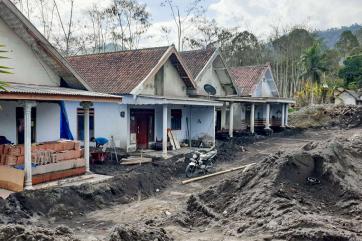
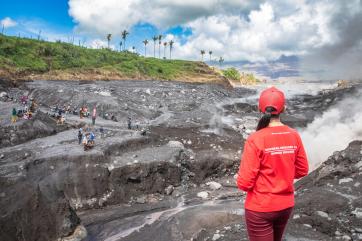
Today, my role as a Regional Standards Advisor gives me a wider scope to support more countries. On the Indonesia team, Nurdianto is a wonderful team leader who took over my role and now manages emergency responses. Working with the other team leaders and members was amazing and I’ve learned so much. I want to give all the credit to my team members in Indonesia. You can accomplish anything with local leaders and team members that understand the situation on the ground. My work now is more focused on ensuring programs are meeting standards that we’ve set out as a humanitarian organization. One of those standards is localization. I help accomplish that by providing recommendations on the right people for the right jobs—because the heart of our work is in the heart of the people supporting their own communities.
One of the things I’ve learned to keep in mind when I go to work is to look at the bigger picture and never judge. We all have our own suffering; it just comes in different shapes. My family has experienced disasters like earthquakes and floods as well. We’re a part of the community, so many of us were survivors of emergencies. My time at Mercy Corps has taught me that we can’t do this alone. We rely on one another, not just during times of our greatest need, but also during the long haul of recovery in the wake of a disaster. I know we’re able to build a better future, for our families and communities, as long as we work together.

